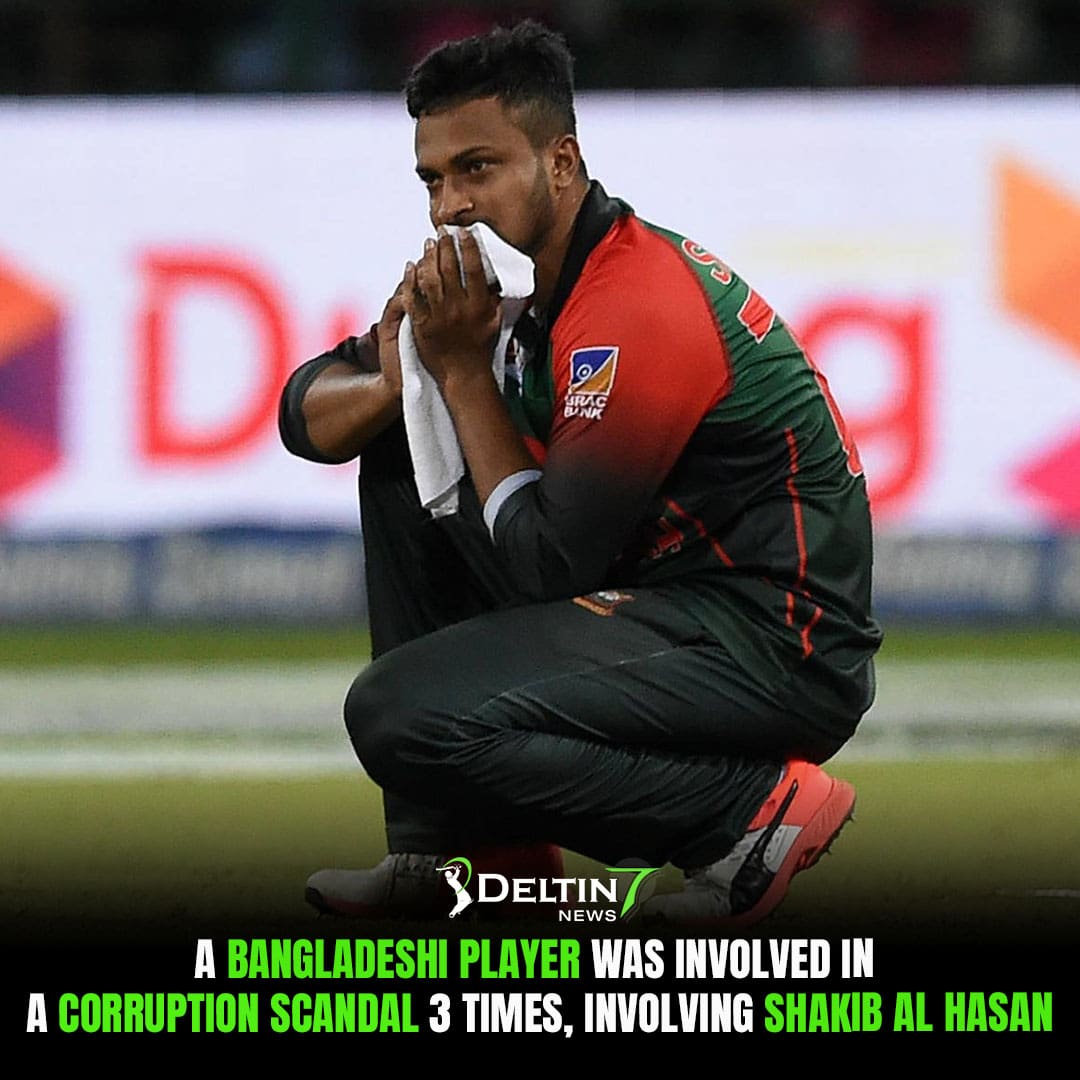
A Bangladeshi player was involved in a corruption scandal 3 times, involving Shakib Al Hasan.
In recent years, the world of cricket has grappled with the persistent issue of corruption, and unfortunately, Bangladesh has not remained untouched by these controversies. Several instances have surfaced, casting a shadow over the integrity of the sport in the country. One such case involves Shariful Haque, a player who became entangled in a corruption scandal that marred the reputation of the Bangladesh cricket team.
Similarly, Mohammad Ashraful, once a prominent figure in Bangladesh cricket, faced allegations of corruption that shook the foundations of the sport in the nation. His involvement in a match-fixing scandal led to severe consequences, impacting not only his career but also leaving a stain on the cricketing landscape of Bangladesh.
Another high-profile case involves Shakib al Hasan, a cricketing icon in Bangladesh. His association with corrupt practices raised eyebrows and triggered a series of investigations. The sanctions imposed on Shakib sent shockwaves through the cricketing community, highlighting the pervasive nature of corruption even among the most celebrated players.
These instances underscore the urgent need for stringent measures to curb corruption in cricket, emphasizing the importance of maintaining the sport’s integrity. The fallout from these scandals serves as a cautionary tale, prompting stakeholders to address the root causes and implement preventative measures to safeguard the future of cricket in Bangladesh.
One of the earliest instances of a Bangladesh cricketer getting banned for corruption was the case of Shariful Haque. In 2012, just before the commencement of the Bangladesh Premier League (BPL), former captain Mashrafe Mortaza made allegations against Haque regarding spot-fixing. The Bangladesh Cricket Board (BCB) promptly formed a committee to investigate the matter. The committee’s findings resulted in the indefinite ban of Haque, making him the first Bangladeshi player to receive a ban for spot-fixing.
Haque, who had played one ODI against India in 1998, had informally retired from the game prior to the ban. The incident sent shockwaves through the cricketing community in Bangladesh, highlighting the urgent need to address corruption in the sport.
Mohammad Ashraful, once considered the poster boy of Bangladesh cricket, faced a significant fall from grace due to his involvement in match and spot-fixing during the 2013 edition of the BPL. The Dhaka Gladiators’ managing director, Shihab Chowdhury, was also implicated in the scandal. The BPL anti-corruption tribunal imposed an eight-year ban on Ashraful, with three years suspended, for his actions.
The ban was a severe blow to Ashraful’s career and shattered the dreams of millions of cricket fans in Bangladesh. The BCB’s disciplinary panel later reduced the ban to five years, offering a glimmer of hope for Ashraful’s potential return to the game.
Arguably one of Bangladesh’s greatest cricketers, Shakib al Hasan, faced a two-year suspension from all cricket activities in 2019. The International Cricket Council (ICC) took this action after Shakib accepted three charges of breaching the ICC anti-corruption code. These breaches occurred during an ODI tri-series involving Sri Lanka and Zimbabwe in January 2018, as well as a match in the Indian Premier League (IPL), where he represented the SunRisers Hyderabad.
At the time of his suspension, Shakib held the No. 3, No. 1, and No. 2 positions in the ICC all-rounders rankings for Tests, ODIs, and T20Is, respectively. The charges against Shakib, including his failure to report approaches for corrupt conduct, dealt a significant blow to the Bangladesh cricket team, which heavily relied on his skills and leadership.
Corruption in cricket is a serious issue that requires constant vigilance and stringent actions to maintain the integrity of the sport. The cases of Shariful Haque, Mohammad Ashraful, and Shakib al Hasan serve as reminders of the challenges faced by cricketing nations like Bangladesh. While these incidents have undoubtedly stained the reputation of the players involved, they also highlight the determination of the cricketing authorities to root out corruption. It is crucial for all stakeholders to work together to create an environment where fair play and sportsmanship prevail, ensuring the future of cricket remains untainted by corruption.
Desert Vipers vs Dubai Capitals ,DV vs DC T20 Match Bold Prediction for Today's Exciting…
MI Cape Town vs Paarl Royals, MICT vs PR T20 Match Prediction, Today's Thrilling Match…
Rangpur Riders vs Khulna Tigers BPL T20, Today Match Prediction & Expert Team Review RGR…
Pakistan vs West Indies, PAK vs WI 2nd Test Match Prediction, Analysis & Thrilling Review…
Sydney Sixers vs Sydney Thunder BBLT20, Today Thrilling Match Prediction & Detailed Review SYS vs…
Australia vs England Women Ashes T20, Expert Match Prediction & Winning Insights AUS-W vs ENG-W…